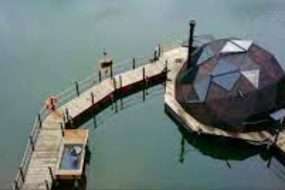
When it comes to planning your dream vacation, securing a vacation rental has become a top choice for travelers worldwide. Vacation rentals offer the comfort of home away from home, a chance to explore new destinations like a local, and often cost savings compared to traditional hotels. However, amidst the convenience and charm of vacation rentals, safety is a paramount concern. In this comprehensive guide, we redefine vacation rental safety, ensuring you can embark on your adventure with peace of mind.
The Landscape of Vacation Rentals
The vacation rental industry has witnessed explosive growth in recent years, with platforms like Airbnb, Vrbo, and Booking.com becoming household names. According to industry reports, the global vacation rental market is expected to reach a staggering $113.9 billion by 2027. This rapid growth has brought both opportunities and challenges in ensuring the safety of vacation rental properties.
Vacation Rentals – A Safe Haven
Vacation rentals offer unique advantages when it comes to safety. They often provide more space, allowing travelers to maintain social distancing. Additionally, the self-contained nature of these properties minimizes interactions with strangers, which can be a significant advantage during a pandemic.
Potential Safety Concerns
While vacation rentals have their merits, they also pose safety challenges. Here are some key concerns:
Unauthorized Access
Without proper security measures, unauthorized access to vacation rental properties can be a significant concern. Smart locks and rigorous check-in procedures are vital to address this issue.
Health and Hygiene
The cleanliness of the property is paramount, especially in a post-pandemic world. Comprehensive cleaning protocols and professional housekeeping are crucial.
Fire Safety
Fire hazards can be a threat in any accommodation. Vacation rentals must have functional smoke detectors, fire extinguishers, and clear evacuation routes.
Redefining Safety Standards
To enjoy your vacation rental experience to the fullest, it's essential to understand and demand high safety standards. Here's how you can redefine safety when booking your next vacation rental.
Thorough Research
Before making a reservation, research the property, its location, and the host. Read reviews from previous guests and check if the host is a verified member on the platform.
Security Measures
Ensure the property has proper security measures, such as secure locks, surveillance cameras (if you're comfortable with them), and contactless check-in options.
Hygiene Protocols
Inquire about the host's cleaning protocols. They should follow guidelines to ensure the property is thoroughly cleaned and sanitized.
Emergency Preparedness
Check if the vacation rental property is equipped with essential safety features, such as smoke detectors, fire extinguishers, and first aid kits.
Communication
Maintain open communication with your host. Having a direct line of communication can be invaluable in case of emergencies or any concerns during your stay.
Commonly Asked Questions
Q1: What should I do if I encounter safety issues at a vacation rental?
A1: Contact your host immediately and document the issue with photos if possible. If the situation escalates, reach out to the platform's customer support for assistance.
Q2: Are there any tools or apps that can enhance vacation rental safety?
A2: Yes, many apps and devices can enhance safety, such as smart locks, noise monitors, and local emergency services apps. Check if your host offers any of these.
Q3: Is travel insurance essential for vacation rentals?
A3: Travel insurance is advisable. It can provide coverage in case of trip cancellations, medical emergencies, or accidents during your stay.
Q4: How can I verify the legitimacy of a vacation rental listing?
A4: Look for verified host badges, read reviews from previous guests, and check if the host responds promptly and professionally to your inquiries.
Q5: What should I do in case of natural disasters while staying at a vacation rental?
A5: Familiarize yourself with local emergency procedures and have an emergency kit ready. Stay in touch with your host and follow local authorities' guidance.











